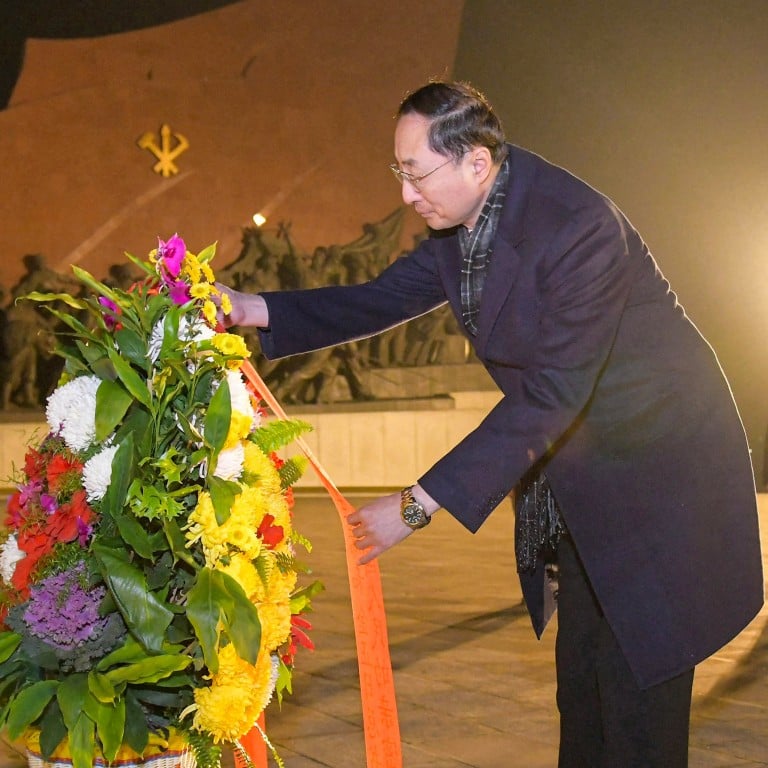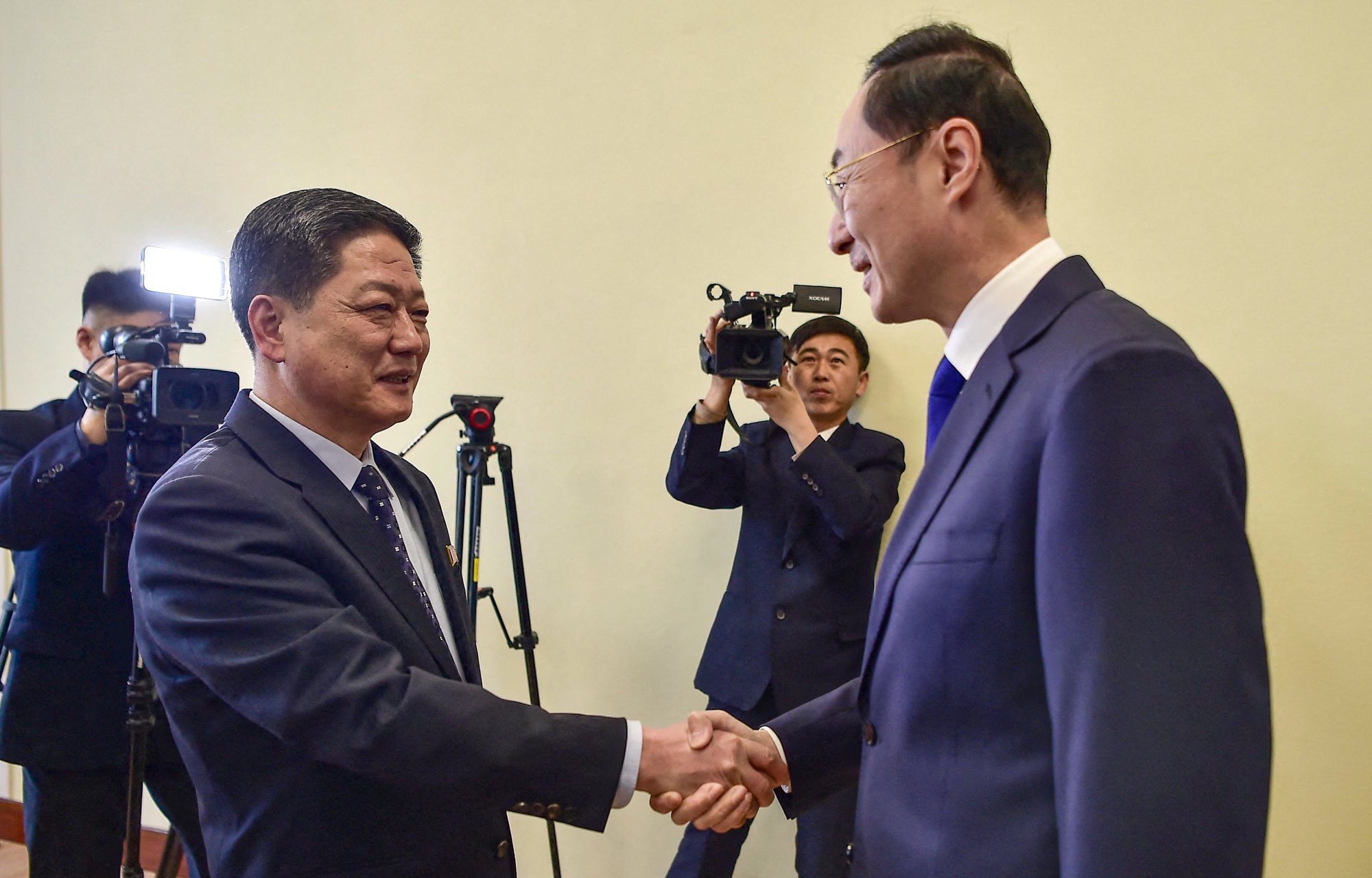
China, North Korea vow to deepen ties ‘at all levels’, no let-up in missile tests by Pyongyang
- Pledge with China comes as North Korea carries out back-to-back missile tests within space of a week and pursues closer ties with Russia
- Beijing and Pyongyang aim to deepen ‘traditional friendship’, Chinese foreign ministry says, after vice-minister Sun Weidong meets Korean counterpart
Days after the pledge with its traditional ally, the North reportedly carried out its second missile test within a week – in a further show of defiance against the United States and its regional allies, particularly South Korea.
North Korea fired several cruise missiles from its east coast on Sunday, Seoul-based news agency Yonhap reported, citing the South Korean military.
While China has remained low key in its response to North Korea’s latest weapons developments and its growing alignment with Russia, Bejing’s ties with both allies are under close international scrutiny.
The North’s latest tests came two days after Chinese foreign vice-minister Sun Weidong met his North Korean counterpart Pak Myong-ho in Pyongyang, in what was their second meeting in just over a month.

The two countries agreed to “deepen their traditional friendship and practical cooperation”, the Chinese foreign ministry said following Friday’s talks.
The two sides also agreed to “strengthen multilateral coordination and cooperation, and push forward the sustained development of relations”.
The discussions covered “bilateral relations, international and regional situations, and other issues of mutual interest and concern”, with both sides reaffirming their “unswerving” aim “to maintain, consolidate and develop bilateral relations”, the Chinese foreign ministry said.
The commitments echoed an exchange in Beijing a week earlier between Liu Jianchao, the diplomatic chief of China’s ruling Communist Party, and North Korean envoy Ri Ryong-nam.
Look out for Russian moves to ‘muddy waters’ at China’s doorstep, analyst warns
Sun and Pak had also pledged to boost “strategic communication and coordination” when they met in Beijing on December 15, ahead of this year’s 75th anniversary of bilateral ties.
On Friday, the two leaders “agreed on the arrangements for major activities of the China-DPRK Friendship Year”, the Chinese ministry said, referring to the North’s Korea’s official name, the Democratic People’s Republic of Korea. It did not offer details.
Pyongyang’s other arms tests this month have included what it called an “underwater nuclear weapon system” and a solid-fuelled hypersonic ballistic missile. In December, it claimed to have tested its most advanced intercontinental ballistic missile, which has the potential to reach the US.
Days before the Liu-Ri meeting, North Korean leader Kim Jong-un called the South its “principal enemy” and vowed to “completely occupy” it in the event of war. In December, he said his country was no longer aiming for reunification with the South.
North Korea’s increased exchanges with Russia have also sparked speculation that the two internationally isolated nations are providing each other military support as tensions flare in Ukraine and on the Korean peninsula.
Days later, North Korean foreign minister Choe Son-hui visited Moscow, where she was received by Russian President Vladimir Putin.
The Kremlin said the two sides agreed to develop relations in “all areas”, including “sensitive” ones, while the North’s official media said Putin was willing to visit at an early date.

